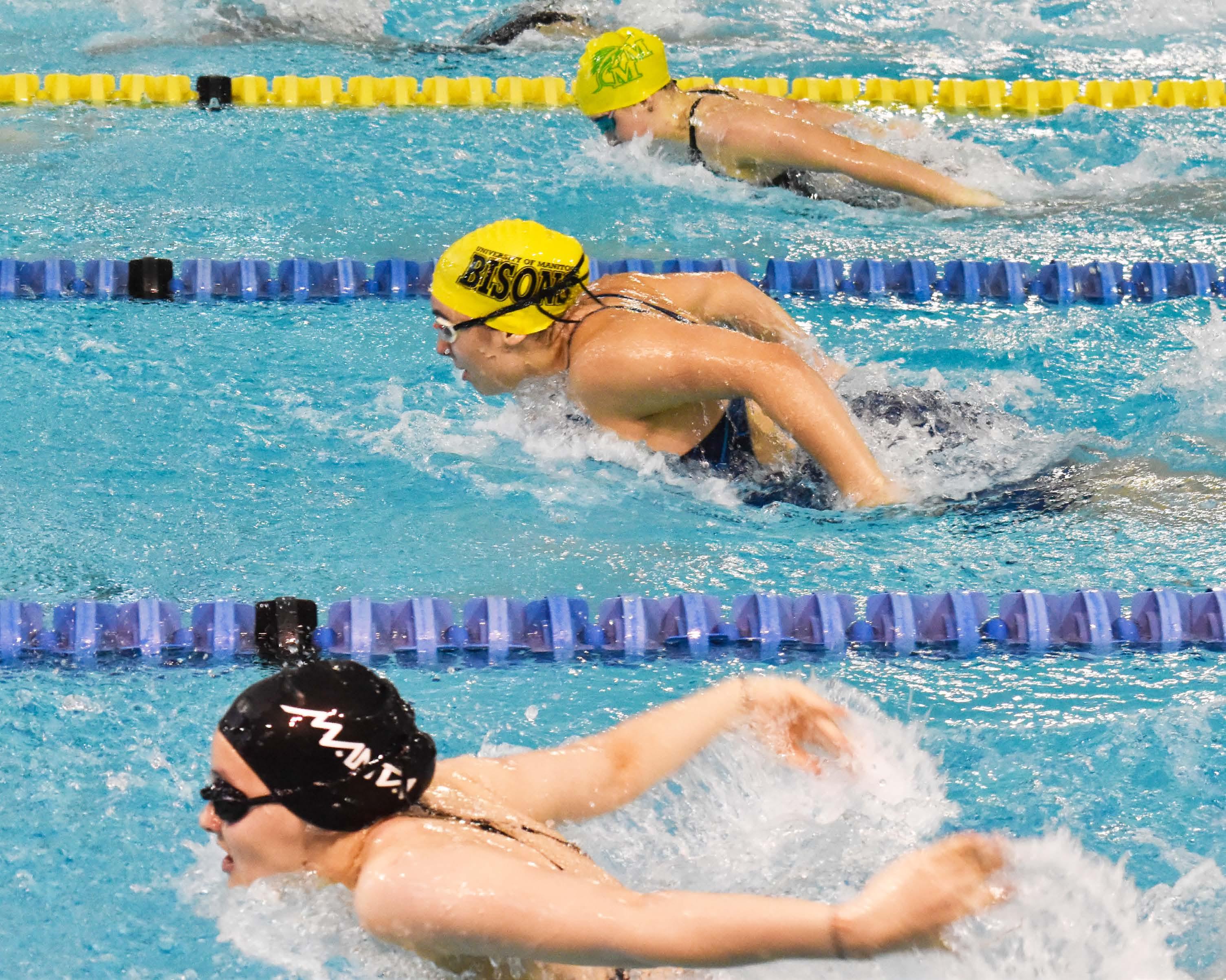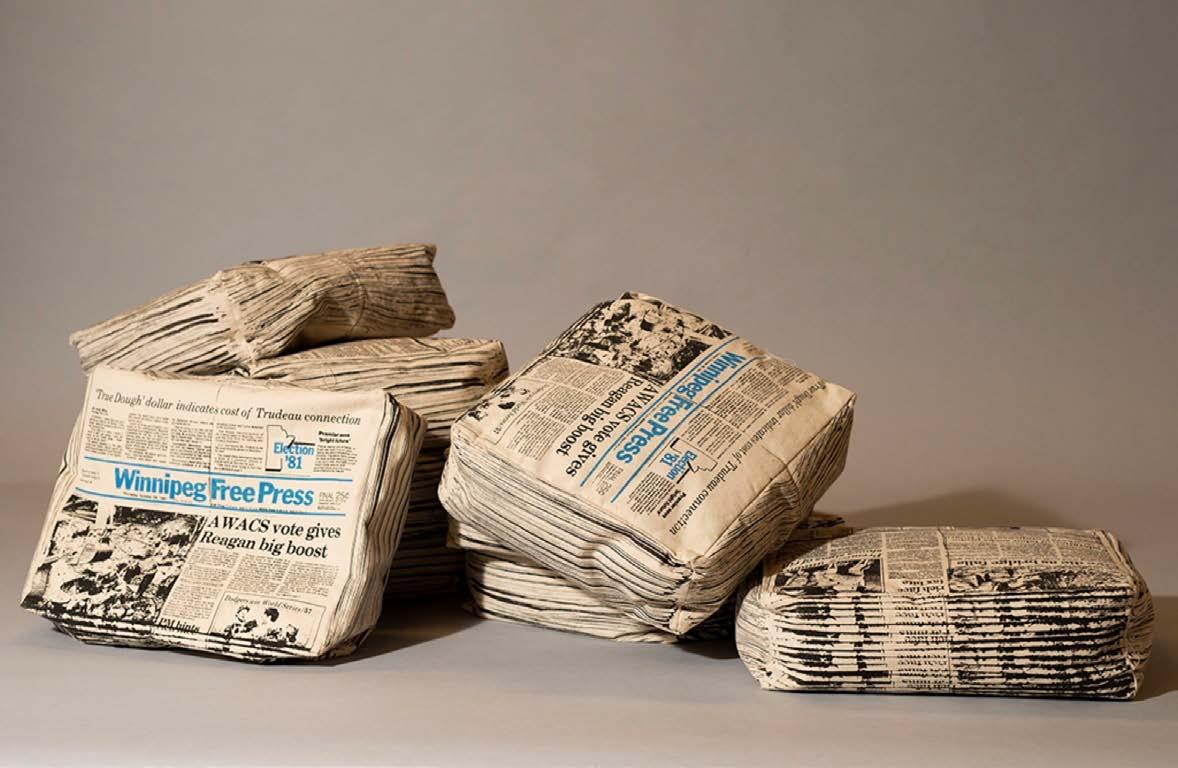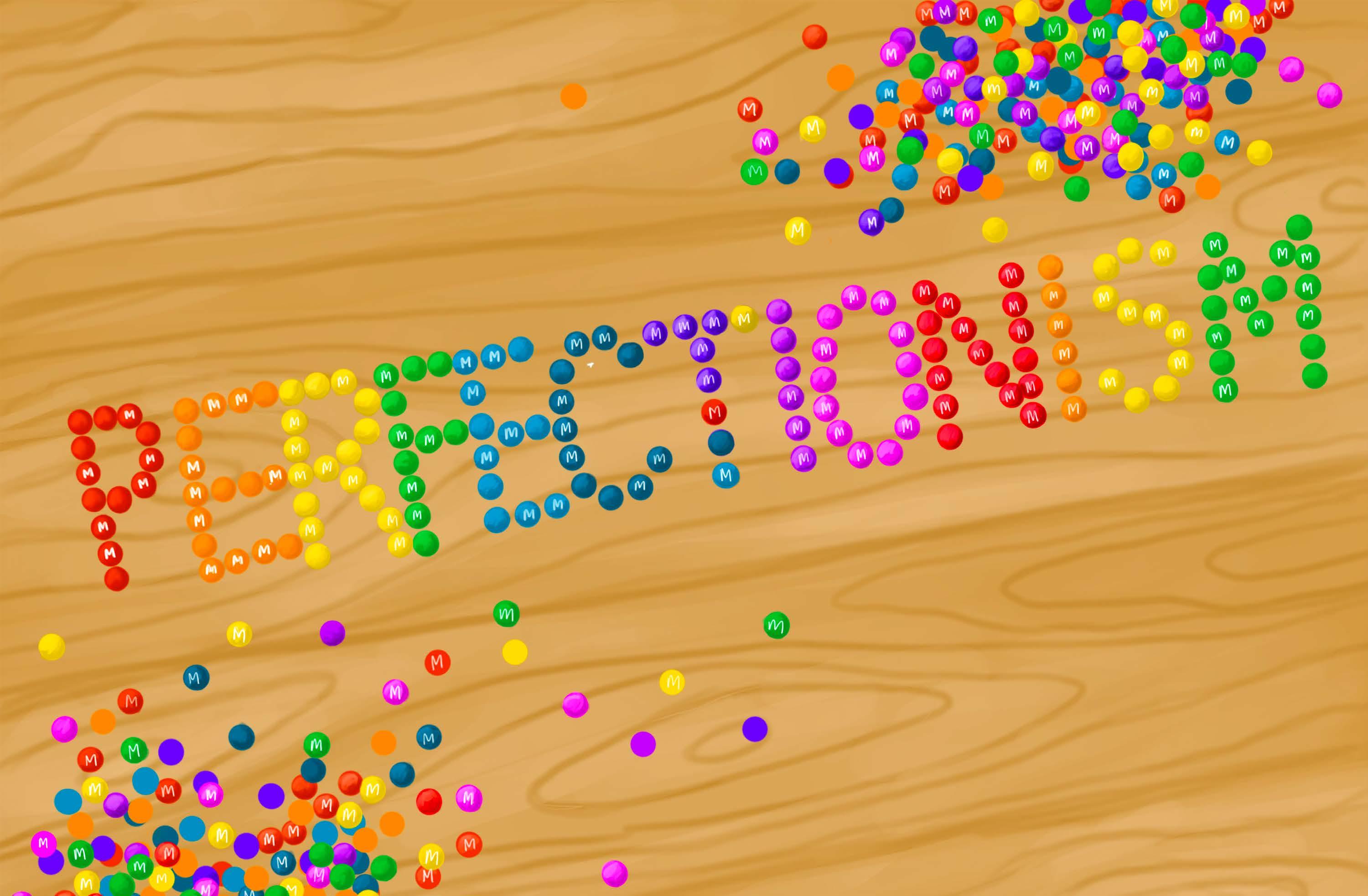
5 minute read
News
from 30 November 2022
Deadline for Welcome Mentors applications approaches
Program involves experienced students mentoring new international students
Colton McKillop, staff
The application deadline to become a welcome mentor for new international students in the upcoming winter term is fast approaching, with Dec. 2 being the last day to apply.
The program assigns new international students to an experienced University of Manitoba student, who will help guide them as they adjust to student life in a potentially unfamiliar culture.
Nora Ampomah, the intercultural programs co-ordinator at the U of M International Centre, said that the Welcome Mentors program exists to help integrate new arrivals into the post-secondary environment.
“Although moving to a new country is exciting, it can be a bit challenging for international students,” she said, adding that this can be especially true for students who have never studied in or visited Canada before.
In the 2021 fall term, the University of Manitoba provided education to nearly 6,800 international students, selves, so they can give back to another new student,” she said.
“It’s a great way for students to enhance their cross-cultural competence by developing a relationship with a peer who may be from a different country or culture.”
which made up 21.9 per cent of the total student population.
Welcome Mentors will provide one-on-one assistance to the new students they are paired with, helping them find academic resources and complete tasks such as registering for courses, paying fees and getting a student ID or bus pass.
Ampomah said that mentors can also refer students to services on campus, as well as other non-academic resources.
“Usually new international students have to navigate cultural shock, especially during the winter term,” she explained.
“They don’t know how cold it is in Winnipeg, so mentors are able to connect them to the right resources in terms of giving them recommendations on where they could get, for example, a good winter jacket, where they could get groceries, get a bank account.”
Any domestic or international students may apply to become a mentor, whether they are in undergraduate or
staff Jenna Solomon / / graphic
graduate studies.
The mentorship lasts for one semester, and mentors are encouraged to communicate virtually with their mentees for an hour and a half per week to meet the required total of 15 hours throughout the term.
Those who are accepted as mentors will receive training on how to best assist students who are new to student life in Canada, and will be eligible to receive credit on their co-curricular record.
Similar mentorship programs for international students exist at other Canadian universities, such as the University of Calgary, York University and the University of Toronto Mississauga.
Ampomah noted that most of the mentors are former mentees.
“New international students really value the support they receive from the program, and because of that, many of them return to the program as volunteers themnews@themanitoban.com
Applications for summer 2023 exchange program open Dec. 1
Ashley Puchniak, staff
Applications for the U of M’s student exchange program are set to open on Dec. 1.
Until Jan. 31, 2023, students will have the opportunity to apply for the student exchange program taking place in the summer and fall terms of 2023, as well as the winter and summer terms of 2024.
The program allows students to travel elsewhere for their studies while earning credits towards their degree at the U of M.
Students can study in places such as Costa Rica, Japan, Australia, Singapore, France and the United Kingdom. They will have the option of going on exchange for one semester or for the entire year.
The U of M is partnered with 50 institutions around the globe in over 20 different destinations.
Naomi Fujiwara, the student exchange co-ordinator at the U of M, outlined that students need a GPA of 3.0 or above, must be in at least their second year and have completed at least 30 credit hours as some of the requirements to participate in the student exchange program.
Fujiwara also emphasized that students interested in an exchange must “demonstrate their strong personal, professional and academic goals.”
Additionally, students will also need to show that they can adjust to living and studying in a foreign country while presenting a reputable image as students of the U of M.
Some other requirements include being registered in a faculty other than university 1 by the time their exchange begins, maintaining full-time student status while abroad and presenting evidence of proficiency in a language other than English if it is relevant to their planned studies.
Fujiwara mentioned that international students are also eligible for the program.
The program’s costs can vary depending on the duration of the exchange, where the student is going and whether the person going on exchange is a domestic or international student.
“One thing students should know for sure is that for the exchange program, students pay their tuition fees to their home institution,” she said, explaining that domestic and international students would still pay their respective tuition rates when studying abroad.
Fujiwara encouraged students to take electives while on exchange, and not just courses specific to their major or minor.
She explained that while this program is for academic purposes, it is also a chance for students to “get out of Manitoba and get the different experiences that they can’t get while they are still here.”
“As much as I want them to do well in academic studies, I also want them to have the time to immerse themselves in the culture they want to,” she said.
Fujiwara explained that this program is beneficial to both a student’s academic and personal development.
“With this exchange, it’s not just about studying overseas and travelling, but [it] also contributes to your personal growth,” she said.
Chimdinma Chijioke, a fourth-year international student at the U of M majoring in political studies, offered some

photo / Faith Peters / staff
insight into the program.
Chijioke went on exchange to Hungary for a six-credithour course that lasted about three weeks.
She explained that the course was similar to the U of M in terms of grading scale.
“That was easier on my end, to understand how the assignments were going to go and how the grades were going to translate,” she said.
Chijioke stated that her experience was academic, but also culturally immersive.
“We learnt a bit of Hungarian language, we tried some of the foods, we tried some traditional crafts and outfits,” she said.
“We also got to go onto many tours, and visited lots of significant places in Hungary.”
Chijioke said she thinks that this program would be beneficial to any student who would like to take a class they are interested in, but be a tourist at the same time.
“Going on exchange was really special, and I’m glad that I had that opportunity,” she said.
More information about the student exchange program can be found on the University of Manitoba’s website.




